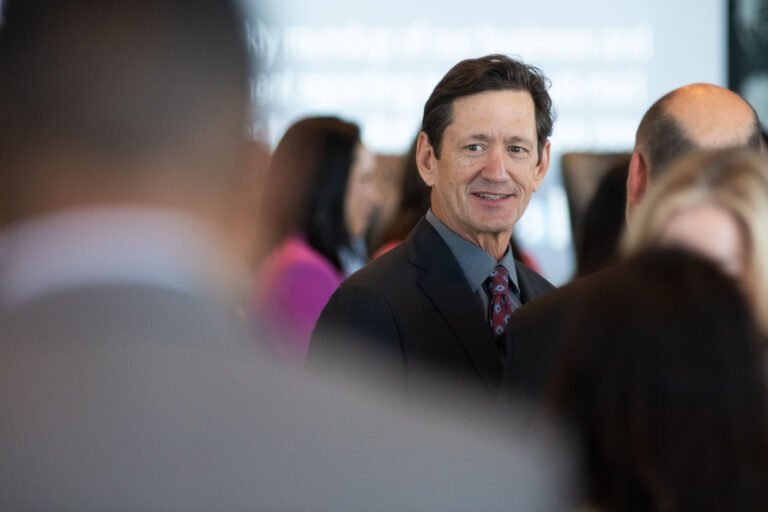USAA’s outbound Head of state and chief executive officer Wayne Peacock has a great deal greater than golf and coastline getaways on his mind nowadays as he heads right into retired life this springtime.
Peacock, that used up the helm of the Ton of money 500 financial and insurance policy titan in 2020 as its initial noncombatant chief executive officer, took a seat with previous Audio speaker of the Texas Home Joe Straus previously today for a fireplace conversation organized by the Globe Matters Council of San Antonio to go over liquidating his period.
In a quickly transforming globe where all-natural catastrophes and worldwide rising cost of living are coming to be the standard, Peacock stated he really hopes USAA can remain to be a column of hope and toughness to the 13.5 million worldwide participants that rely on the business.
” We have actually made financial investments to make certain that USAA stays pertinent for the future,” he stated, keeping in mind that the board has actually currently chosen Juan Andrade as his follower.
Like several insurer today, USAA is dealing with unmatched times that consist of financial difficulties such as climbing rate of interest and geopolitical dangers, he stated. While the business can not take on these problems alone, it can intend to make them much less hard for their participants, Peacock stated.
He indicated USAA’s current feedback to the California wildfires as an instance. Given that the wildfires burst out on Jan. 7, USAA has actually refined greater than 6,000 cases in the Los Angeles location mainly via utilizing satellite and drone images to aid evaluate damages and speed up case settlements, Peacock stated.
” We were the initial on the ground and the initial to obtain cash right into our participants’ hands,” Peacock stated. Around 1,000 of those cases were for homes that were entirely damaged, he stated.
Peacock stated he thinks that the means USAA has actually welcomed modern technology, consisting of expert system, will just remain to aid the business turn into the future.
” Whatever we think of the rate behind us, the rate before us is mosting likely to relocate far more rapidly,” he stated.



